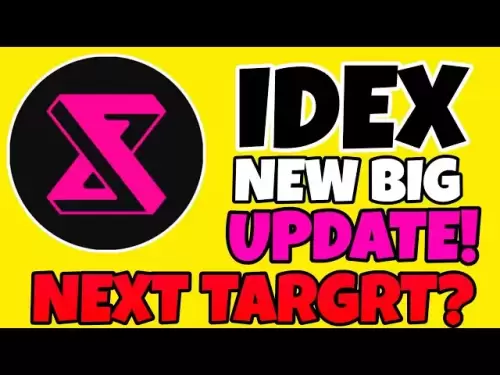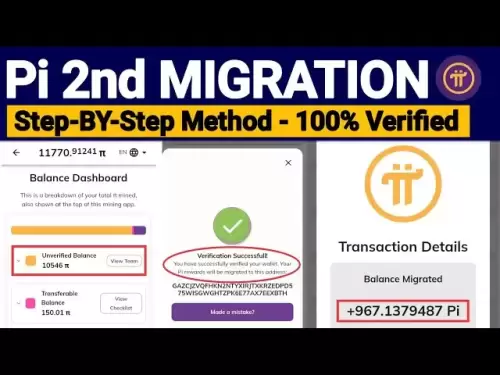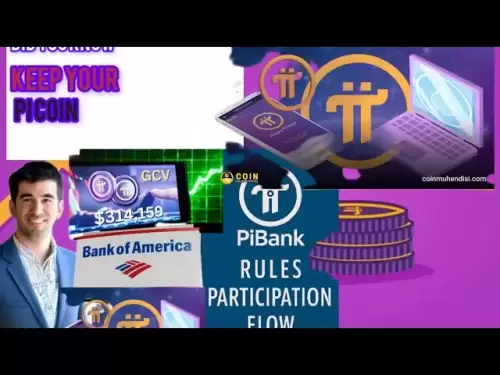-
 Bitcoin
Bitcoin $118,929.2549
1.28% -
 Ethereum
Ethereum $2,997.9009
1.93% -
 XRP
XRP $2.8713
4.75% -
 Tether USDt
Tether USDt $1.0004
0.00% -
 BNB
BNB $691.4918
0.76% -
 Solana
Solana $163.0406
1.63% -
 USDC
USDC $0.9999
0.00% -
 Dogecoin
Dogecoin $0.2018
2.07% -
 TRON
TRON $0.3048
1.49% -
 Cardano
Cardano $0.7480
5.80% -
 Hyperliquid
Hyperliquid $48.9191
5.74% -
 Stellar
Stellar $0.4770
23.33% -
 Sui
Sui $3.5123
3.51% -
 Chainlink
Chainlink $15.8794
5.57% -
 Hedera
Hedera $0.2450
24.69% -
 Bitcoin Cash
Bitcoin Cash $508.5023
-0.23% -
 Avalanche
Avalanche $21.5613
3.87% -
 UNUS SED LEO
UNUS SED LEO $9.0354
-0.56% -
 Shiba Inu
Shiba Inu $0.0...01342
1.60% -
 Toncoin
Toncoin $2.9916
0.75% -
 Litecoin
Litecoin $96.4502
4.22% -
 Polkadot
Polkadot $4.0449
3.62% -
 Monero
Monero $340.4631
3.33% -
 Uniswap
Uniswap $8.6721
3.60% -
 Dai
Dai $0.9999
0.00% -
 Ethena USDe
Ethena USDe $1.0007
0.02% -
 Pepe
Pepe $0.0...01253
2.56% -
 Bitget Token
Bitget Token $4.3906
0.61% -
 Aave
Aave $312.7918
4.21% -
 Bittensor
Bittensor $399.0553
3.72%
How to create a multi-send or airdrop smart contract?
A multi-send smart contract enables efficient token distribution to multiple addresses in one transaction, reducing gas costs and streamlining airdrops or reward campaigns on Ethereum and EVM-compatible blockchains.
Jul 13, 2025 at 11:08 am
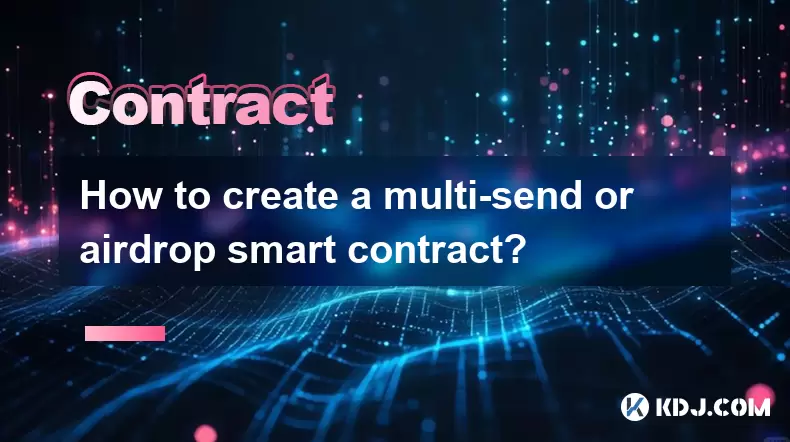
Understanding Multi-Send and Airdrop Smart Contracts
A multi-send or airdrop smart contract is a type of Ethereum-based contract that allows for the efficient transfer of tokens to multiple recipients in one transaction. This method significantly reduces gas costs compared to sending individual transactions. Developers often use this approach when launching token distributions, marketing campaigns, or reward systems.
In the context of Ethereum Virtual Machine (EVM) compatible blockchains, such as Binance Smart Chain, Polygon, or Avalanche, deploying such contracts follows similar principles. The core idea involves creating a function that iterates through an array of addresses and sends a specified amount of tokens to each.
Setting Up Your Development Environment
Before writing your contract, ensure you have the necessary tools installed:
- Remix IDE: A browser-based Solidity compiler and development environment.
- MetaMask: For interacting with blockchain networks and signing transactions.
- Node.js & Hardhat/Truffle: Optional for advanced local testing and deployment.
- ERC-20 Token: Ensure you have a deployed ERC-20 token or use a testnet version.
Once everything is set up, connect MetaMask to a test network like Ropsten, Goerli, or Sepolia to avoid spending real ETH during testing.
Writing the Smart Contract in Solidity
Below is a basic example of a multi-send smart contract written in Solidity:
// SPDX-License-Identifier: MIT
pragma solidity ^0.8.0;interface IERC20 {
function transferFrom(address sender, address recipient, uint256 amount) external returns (bool);
}
contract MultiSender {
address public owner;
constructor() {
owner = msg.sender;
}
function multiSendTokens(address _tokenAddress, address[] memory _recipients, uint256[] memory _amounts) public {
require(_recipients.length == _amounts.length, "Recipient and amount arrays must match");
IERC20 token = IERC20(_tokenAddress);
for (uint256 i = 0; i < _recipients.length; i++) {
require(token.transferFrom(msg.sender, _recipients[i], _amounts[i]), "Token transfer failed");
}
}
}
This contract defines a multiSendTokens function that accepts an ERC-20 token address, an array of recipient addresses, and an array of corresponding token amounts. It uses transferFrom, which requires users to first approve the contract to spend their tokens via the approve() function on the token contract.
Deploying the Smart Contract
To deploy the contract:
- Open Remix IDE and create a new file named
MultiSender.sol. - Paste the code above into the editor.
- Switch to the "Solidity Compiler" tab and compile the contract.
- Go to the "Deploy & Run Transactions" tab.
- Select the appropriate environment — choose Injected Provider - MetaMask.
- Click Deploy and confirm the transaction in MetaMask.
After deployment, copy the contract address for future reference.
Approving Tokens and Executing the Airdrop
Before calling multiSendTokens, the user must approve the contract to spend their tokens:
- Interact with the ERC-20 token contract using MetaMask or Remix.
- Call the
approve()function with the contract address and a sufficient token amount. - Confirm the approval transaction.
Once approved, call the multiSendTokens() function from the MultiSender contract with the following parameters:
_tokenAddress: Address of the ERC-20 token._recipients: Array of wallet addresses._amounts: Array of token amounts to send to each recipient.
Ensure both arrays are of equal length and correspond correctly.
Troubleshooting Common Issues
- Revert Errors: Often occur due to mismatched array lengths or insufficient approvals.
- Out of Gas: Sending to too many addresses at once can exceed block gas limits. Consider batching in smaller groups.
- Incorrect Token Address: Double-check the token address used in the contract.
- TransferFrom Failed: Indicates either no approval or insufficient token balance.
If the transaction reverts, analyze the transaction trace in Etherscan to pinpoint where execution failed.
Frequently Asked Questions
Q1: Can I reuse the same contract for multiple airdrops?
Yes. As long as the contract remains funded and the token approvals are valid, it can be reused for subsequent airdrops by calling the multiSendTokens() function again.
Q2: What if I want to send native ETH instead of tokens?
You would need to modify the contract to accept and distribute ETH using msg.value and payable(recipient).transfer(amount) inside a loop. However, looping over transfers of native currency increases gas consumption and risk of failure.
Q3: How do I batch process thousands of airdrops efficiently?
Break the list into smaller chunks (e.g., 100–200 per batch) to stay within gas limits. Alternatively, consider off-chain solutions like Merkle drop contracts, which allow users to claim tokens individually.
Q4: Is it safe to approve unlimited tokens to the contract?
Approving unlimited tokens poses a potential risk if the contract has vulnerabilities or malicious intent. Always review the contract source code and consider approving only the exact amount needed for the airdrop.
Disclaimer:info@kdj.com
The information provided is not trading advice. kdj.com does not assume any responsibility for any investments made based on the information provided in this article. Cryptocurrencies are highly volatile and it is highly recommended that you invest with caution after thorough research!
If you believe that the content used on this website infringes your copyright, please contact us immediately (info@kdj.com) and we will delete it promptly.
- AI Predicts XLM Price Surge: Will Stellar Reach New Heights?
- 2025-07-14 02:50:16
- Kate Middleton, Wimbledon, and a Brave Young Cancer Patient: A Royal Day at the Championships
- 2025-07-14 02:30:16
- Memecoin Mania: Pump.fun's $600 Million Blitz – What's the Deal?
- 2025-07-14 02:30:16
- Crypto Acquisitions Heat Up: OpenSea, PumpFun, and the NFT Revolution
- 2025-07-14 02:50:16
- MicroStrategy, Bitcoin, and Buying the Dip: What's the Resume?
- 2025-07-14 02:55:16
- Pi Network Price Prediction: Navigating the Cryptocurrency Hype
- 2025-07-14 02:55:16
Related knowledge

Psychology of trading Bitcoin contracts
Jul 13,2025 at 02:50am
Understanding the Emotional Rollercoaster of Bitcoin Futures TradingBitcoin contract trading, especially in the form of futures, introduces a high lev...
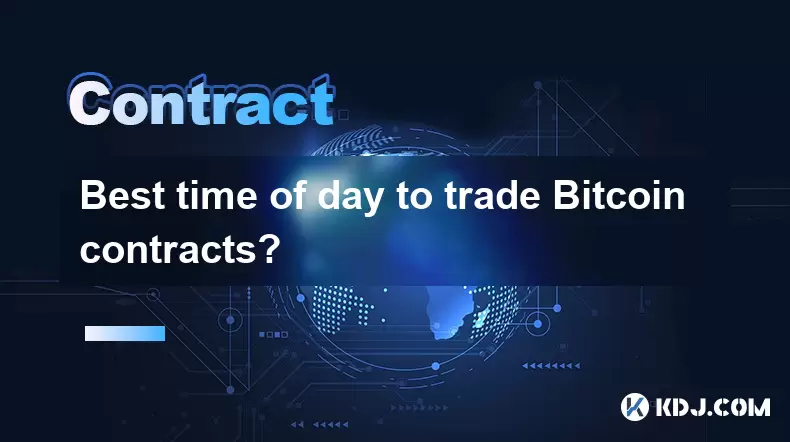
Best time of day to trade Bitcoin contracts?
Jul 13,2025 at 05:29am
Understanding Bitcoin Contracts and Their VolatilityBitcoin contracts, particularly futures contracts, are derivative instruments that allow traders t...
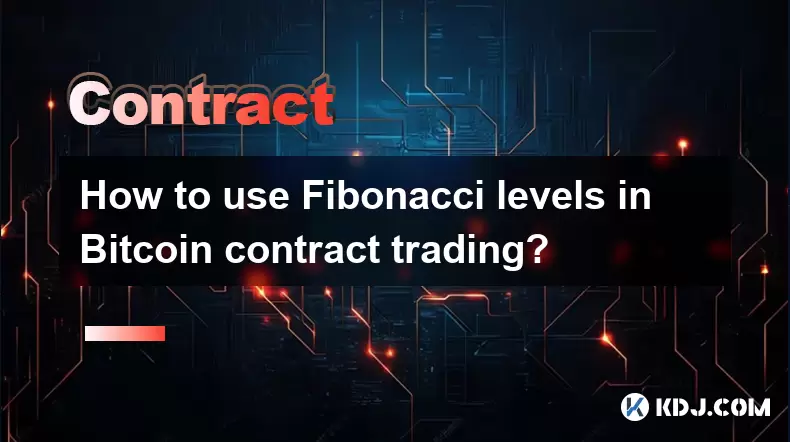
How to use Fibonacci levels in Bitcoin contract trading?
Jul 13,2025 at 08:07am
Understanding Fibonacci Levels in TradingFibonacci levels are a technical analysis tool used by traders to identify potential support and resistance z...

Understanding the Bitcoin futures term structure
Jul 13,2025 at 08:28am
What is Bitcoin Futures Term Structure?The Bitcoin futures term structure refers to the relationship between the prices of Bitcoin futures contracts w...

What are the trading hours for Bitcoin futures?
Jul 13,2025 at 12:14pm
Understanding Bitcoin Futures Trading HoursBitcoin futures are derivative contracts that allow traders to speculate on the future price of Bitcoin wit...
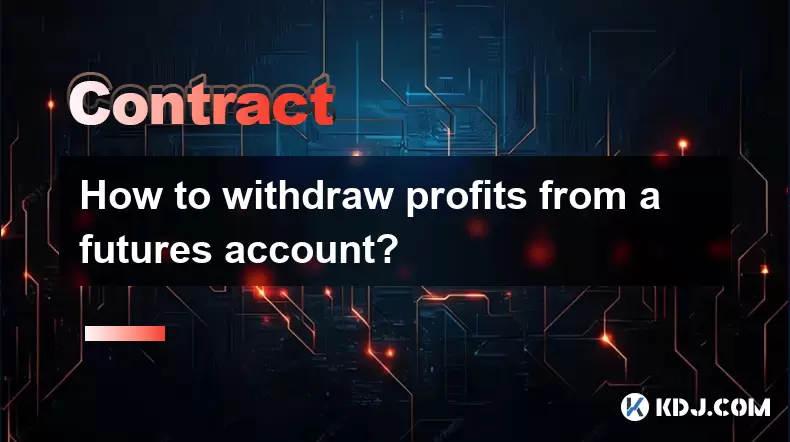
How to withdraw profits from a futures account?
Jul 13,2025 at 07:07am
Understanding Futures Accounts and Withdrawal MechanicsIn the cryptocurrency space, a futures account is used to trade contracts that derive their val...

Psychology of trading Bitcoin contracts
Jul 13,2025 at 02:50am
Understanding the Emotional Rollercoaster of Bitcoin Futures TradingBitcoin contract trading, especially in the form of futures, introduces a high lev...

Best time of day to trade Bitcoin contracts?
Jul 13,2025 at 05:29am
Understanding Bitcoin Contracts and Their VolatilityBitcoin contracts, particularly futures contracts, are derivative instruments that allow traders t...

How to use Fibonacci levels in Bitcoin contract trading?
Jul 13,2025 at 08:07am
Understanding Fibonacci Levels in TradingFibonacci levels are a technical analysis tool used by traders to identify potential support and resistance z...

Understanding the Bitcoin futures term structure
Jul 13,2025 at 08:28am
What is Bitcoin Futures Term Structure?The Bitcoin futures term structure refers to the relationship between the prices of Bitcoin futures contracts w...

What are the trading hours for Bitcoin futures?
Jul 13,2025 at 12:14pm
Understanding Bitcoin Futures Trading HoursBitcoin futures are derivative contracts that allow traders to speculate on the future price of Bitcoin wit...

How to withdraw profits from a futures account?
Jul 13,2025 at 07:07am
Understanding Futures Accounts and Withdrawal MechanicsIn the cryptocurrency space, a futures account is used to trade contracts that derive their val...
See all articles





















